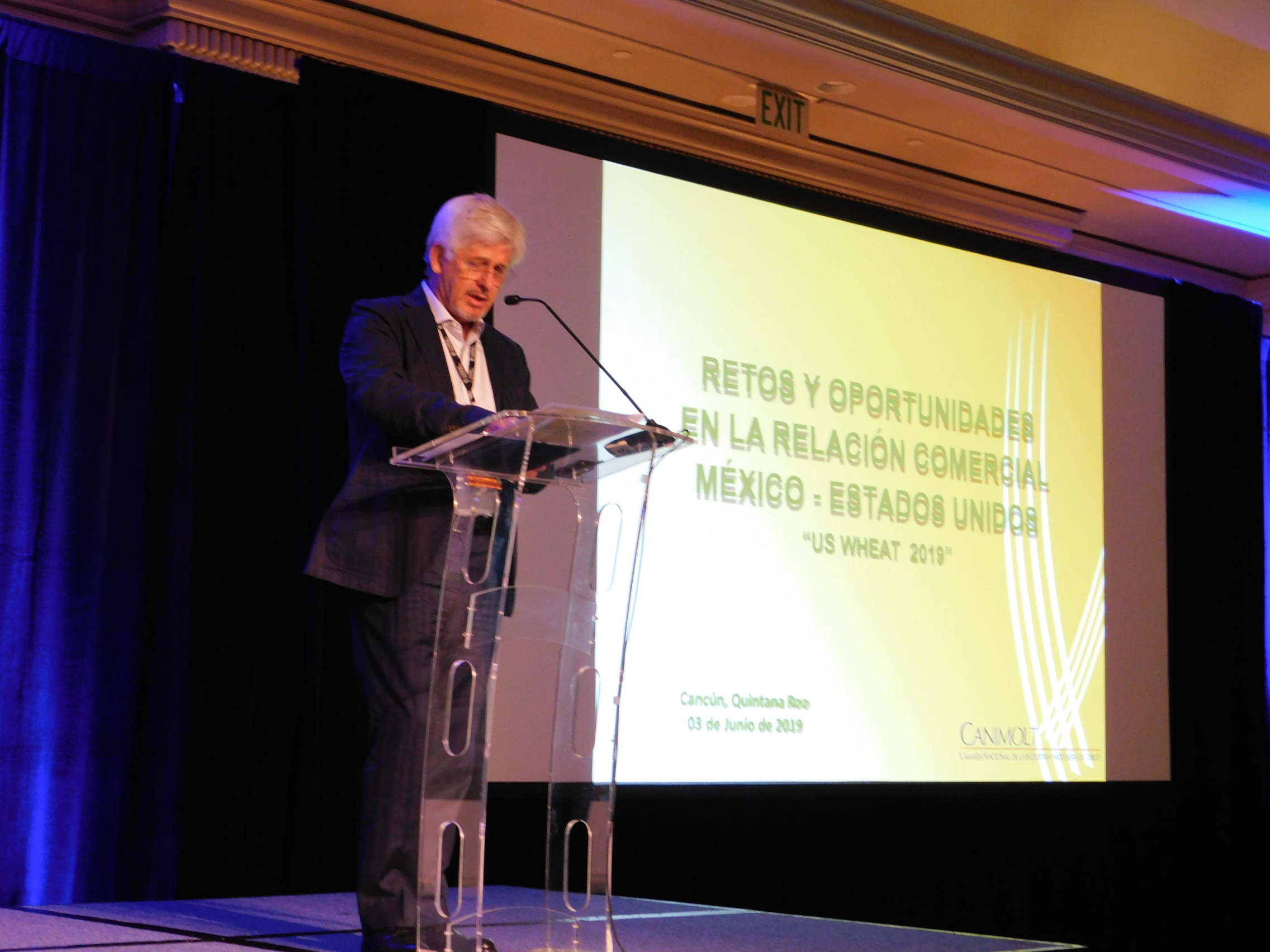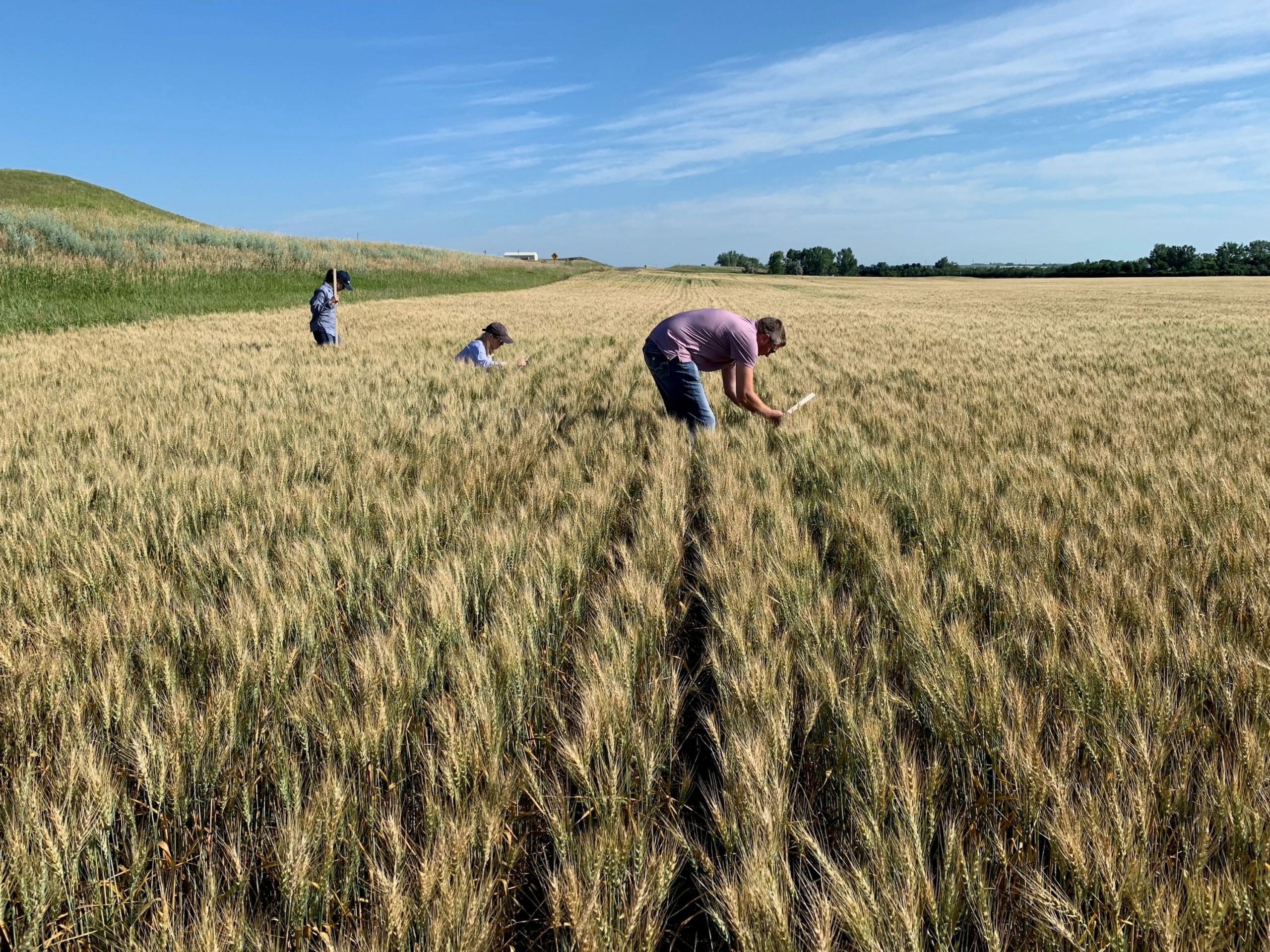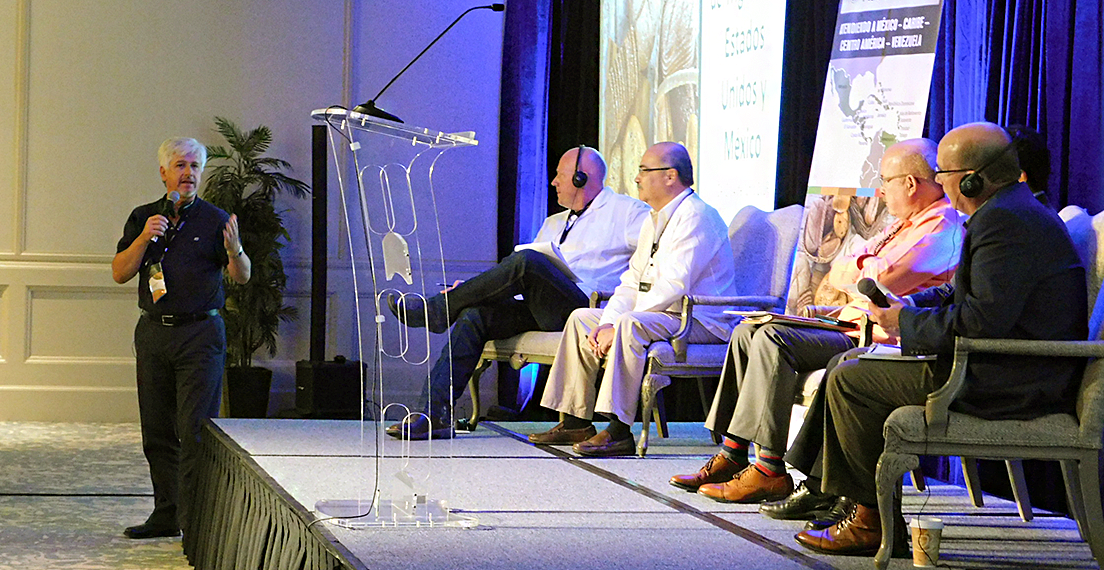Trade Promotion Assistance Will Support USW Activities in New and Established Markets
Under the Agricultural Trade Promotion (ATP) program administered by USDA’s Foreign Agricultural Service (FAS), U.S. wheat farmers recently welcomed additional support for the effort to build overseas demand for the high-quality wheat they produce.
FAS awarded $8.2 million to U.S. Wheat Associates (USW) in cost-share assistance in May 2019 and awarded an additional $2.6 million on July 19 earmarked for wheat export promotion through September 2022. To apply for the funding USW was required to demonstrate that wheat farmers were hurt by import barriers laid down as a result of trade disputes. In 2018, USW reported that farmers had experienced losses of more than $330 million as a result of China’s retaliatory tariffs on wheat and a slow down in imports by Mexico.

José Luis Fuente, President of Camara Nacional de LA Industria Molinera de Trigo (CANIMOLT) at the USW Mexico Wheat Trade Conference, June 2 to 4, 2019.
USW will do all it can to use these additional resources as effectively as possible and demonstrate how the addition of ATP funds will help grow new opportunities for wheat farmers and differential service for overseas customers. These include on-going efforts to develop emerging wheat export markets in Myanmar, Malaysia, Vietnam and Indonesia as well as niche soft wheat markets in the Middle East and North Africa.
USW is already putting these ATP funds to work. In June, USW held a very successful conference for Mexican wheat buyers that brought together wheat farmers, the grain trade and flour millers who represent more than 80% of Mexico’s total wheat import volume. USW sees growth potential in Chile and with ATP funding sponsored a representative of a large Chilean buyers’ group to participate in the recent Wheat Quality Council’s annual hard red spring (HRS) wheat tour in North Dakota. ATP funding is now helping build increased awareness of U.S. wheat’s superior baking quality in flour blends in the large regional market around Bogotá, Colombia.
These ATP funds come at a critical juncture for the U.S. wheat industry, said USW President Vince Peterson.

Participants take measurements to estimate yield at the recent 2019 Spring Wheat Quality Tour in North Dakota.
“We appreciated the support for the traditional Market Access Program and Foreign Market Development program in the most recent Farm Bill,” he said. “However, those program apportionments have remained essentially unchanged for 17 years with FMD and 13 years with MAP and the ravages of time and inflation have eaten away at their effective bottom lines. This renewed financial capability is an important response that will help USW adequately address both today’s trade challenges and tomorrow’s new market opportunities.”
Peterson cited several trade challenges. Mexico for example is a leading buyer of U.S. wheat, but almost everything about that relationship depends now on the passage of the pending U.S.-Mexico-Canada Agreement on Trade. In Japan, a strong preference for several U.S. wheat classes there is threatened by the growing tariff advantage for Canadian and Australian wheat supplies under the new Trans-Pacific Partnership agreement. Since March 2018, China has turned to Canada to supply what had been U.S. wheat before tariffs were implemented and just this week its government announced changes that will make it possible to import Russian grain supplies. USW is encouraged by apparent progress in those negotiations reported on July 31.
The Trump Administration’s support through the ATP program, combined with the Market Facilitation Program (MFP), is welcomed by wheat farmers affected by low prices and other risks related to on-going trade challenges. It is no exaggeration to say that the long-term health of an industry that contributes about $6 billion per year to wheat farm families and U.S. wheat supply businesses hinges on a swift and favorable end to the on-going trade disputes.
*Header Photo Caption: Panel on “Optimizing Rail Operations of U.S. Wheat Shipments and Minimizing Additional Expenses for Mexican Importers.” at the USW Mexico Wheat Trade Conference, June 2 to 4, 2019.


